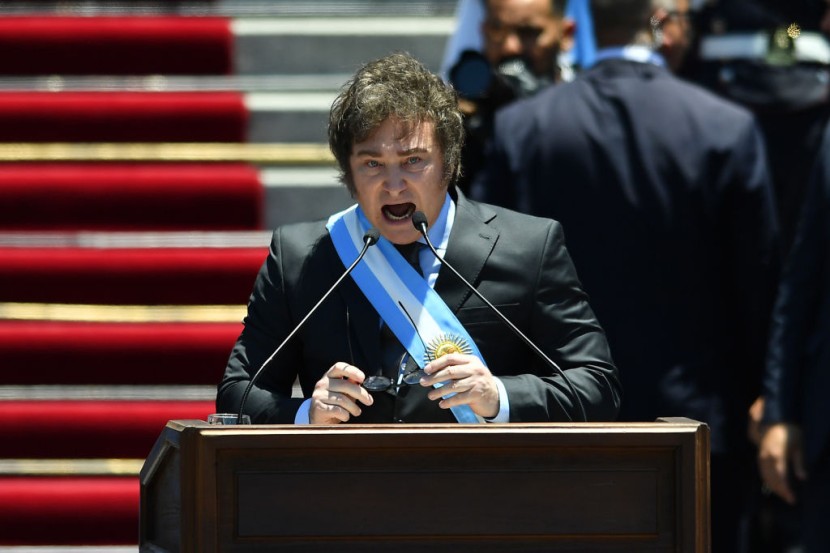Argentina's Congress dealt a major blow to President Javier Milei by sending the libertarian's reform bill back to the committee.
The development came just as the Chamber of Deputies was preparing for a vote on the bill. The president's La Libertad Avanza (LLA) party suddenly requested and obtained the adjournment of the session.
Javier Milei Suffers Political Setback

The leader of the ruling party faction, Oscar Zago, said that the governors of the provinces were not able to keep their word. He added that the matter was being sent back to the committee for further dialogue. He also denied that the move was a failure for the president.
The new obstacle for the package, which won approval in principle pending further examination last week, was put up as the president went on a trip to Israel. During his travel, Milei offered a fiery response, saying that the government program was voted by 56% of Argentines, adding that they are not willing to negotiate it with those who he said "destroyed the country," as per France24.
The libertarian also noted that they know it will be difficult to change a system in which politicians have taken advantage of to enrich themselves at the expense of the country's people. MPs resumed their thorny, article-by-article examination of the president's ambitious "Omnibus" law on Tuesday.
The bill initially contained 660 provisions covering the country's economy, trade, culture, criminal law, and even football clubs. It has since been whittled down to roughly 300 articles following discussions.
The Argentine president had claimed an initial victory on Tuesday with deputies approving the principle of "delegated powers" to the executive for one year. They also approved to legislate by decree in the name of "economic urgency."
However, the evening vote looked to be more contentious due to provisions over which the opposition intended to demand changes. These include reforms that were related to the privatization of state companies or the distribution of state resources.
Guillermo Francos, Milei's interior minister, said that lawmakers had "committee votes they did not then deliver." He added that the law was losing its essence with the development of the reform bill, according to the Financial Times.
Changing the Controversial Reform Bill
The president has long faced questions about how he would build congressional majorities to govern to enact his controversial plans to cut spending and economic regulations in Argentina. An associate professor of politics at Buenos Aires' University of San Andres, Eugenia Mitchelstein, said that the government's "incendiary rhetoric" is a bad sign for the reform bill's eventual approval.
Milei has sought support for the reform bill from lawmakers within the main conservative coalition, Juntos por el Cambio. This was due to his own party's relative weakness in Congress.
The president on Tuesday criticized lawmakers who he accused of blocking the bill in a post on social media, saying they were part of the political "caste" that is responsible for the country's problems.
Milei has largely laid the blame for Argentina's dire economic straits, including inflation that is running at over 200%, on profligate overspending that was engineered by past governments, said Reuters.
Related Article:
Norway's Defense Minister Calls for Vigilance Amid Rising Tensions with Russia
© 2025 HNGN, All rights reserved. Do not reproduce without permission.








